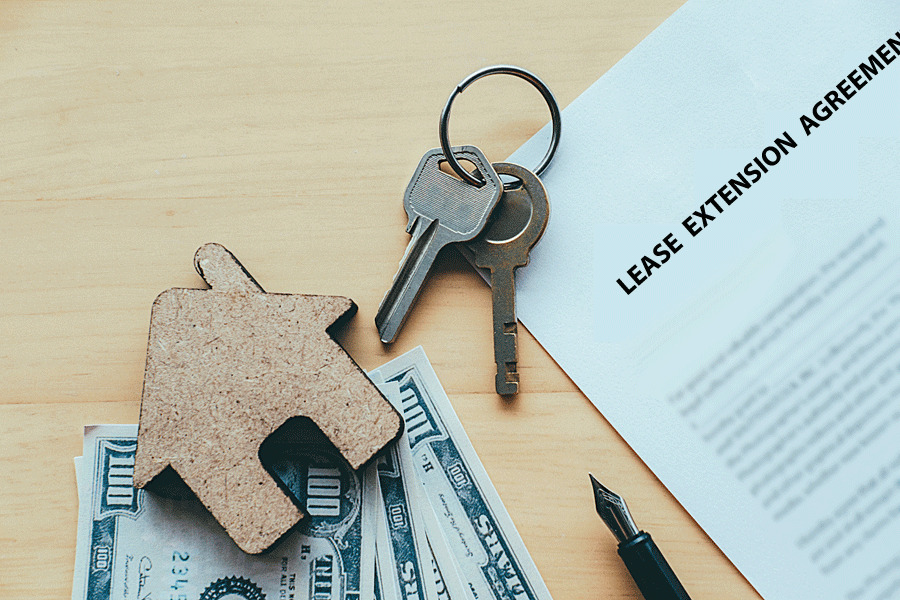A (garage) parking rental agreement is a contract between a property owner who controls an area of space designated for a vehicle and a vehicle owner who is allowed to rent it in return for payment.
It is commonly used in condominium buildings in urban areas where parking spots may be scarce or if someone has two or more parking spaces that they are not using and would like to rent out.
Alternative names for it are:
- Parking space lease agreement
- Parking rental agreement
- Garage rental lease agreement
- Parking space lease form
Understanding Parking Lease Agreement
Before drafting this agreement, there are various things that one should consider, such as when to use it, why one should use it, and who can use it. Below is a breakdown of these three essential items:
Why is it used?
Leasing commercial parking spaces can be lucrative, especially in most urban areas where parking spaces are usually limited. All businesses have their ups and downs, and as such, one should be prepared when venturing into leasing out parking spaces. One great tool that one should equip oneself with is a lease agreement that will help establish the terms of use of the parking space and define the consequences of breaching such rules.
The lease agreement will help clear everything that the lessee needs to know when agreeing to lease, such as the size of the parking space, the vehicles permitted to park, etc.
When is it used?
Renting out a parking space is advantageous to both the owner of the space and the renter. For example, in urban areas where parking spaces are frequently scarce, renters can secure parking by entering into an agreement with the space owner. This agreement typically spans one month, ensuring exclusive use of the parking space without interruptions. Or, if one has an apartment building or a rental property that they would like to rent out separately, they can also use it to establish the terms of their agreement.
The lease agreement is used in the following situations:
- When an individual, acting as a lessor, wants to lease their parking space to others,
- When an individual seeks to rent a property owner’s space for their personal parking needs.
Typically, these cases may include an individual working in the city and looking for a parking area near their workplace and commercial tenants looking to lease it to an office or other business.
Parking Lease Agreement Elements
A parking lease agreement defines the relationship between two parties. For the relationship to be established, however, there is critical information that must be included in the agreement, such as:
Contact information
The contact information to be included includes the name, address, and phone numbers of both the lessor and the lessee.
Parking space allocation
The document should include details about the parking space, i.e., where it is located (the stall number and main address) and the GPS information. The agreement should also include any other vital details, such as instructions on opening the gates and the need for unique vital cards to access the parking space.
Terms and conditions
The parking space lease agreement should highlight the terms and conditions of the use of the space. The terms and conditions to include in the document may include information on whether the lessee is allowed to sublease it, which is permitted entry, which type of vehicle is allowed, the condition of the vehicle while accessing the parking space, i.e., no oil spillage or fumes, and conditions stating that the lessee is not allowed to sleep in the vehicle while parked at the parking space and no overnight parking. Other conditions to consider include vehicle registration and insurance coverage.
Term
The term of the agreement is the agreed-upon duration for which the lessee can use the parking space. It should detail how long the lease is for, i.e., the start and end dates. It should also highlight whether the lease is subject to renewal and how such renewals may be affected.
Rent
The rent amount and the frequency of payments, i.e., daily, weekly, monthly, yearly, etc., should be clearly mentioned and also include provisions for late fees and grace periods for when defaults should be remedied.
Security deposit
In addition to the rent payment, the agreement should also outline whether the lessee will be required to pay a security deposit.
Vehicle description
Different parking spots, especially in urban areas and business complexes, have different rules. If different vehicles are allowed to park in the slot being leased, placards or dashboards should be provided to show that they have been approved to do so.
Liability
The liability provision outlines the type of security provided and those the parking space owner is not liable for, such as items stolen from the vehicle, accidents, or damages in the parking lot.
Termination
A parking space lease agreement should include a termination clause. Lease agreements are typically terminated for reasons such as non-payment, agreement breach, or a mutual decision to end the lease. All these factors should be taken into consideration when creating the termination clause.
Arrangements for keys and access
If the lessee must have a key or gate pass to access the property, such arrangements should be defined in the agreement, i.e., when, where, and how access will be granted.
Free Templates
Discover a range of meticulously crafted Free Garage (Parking) Rental Agreement Templates, along with a standard one, meticulously designed to outline the terms and conditions of your parking rental, safeguarding both the renter and the property owner while ensuring a seamless and transparent rental experience.

Agreement Violations
Upon renting the garage, it is possible for the tenant to make certain violations that may render the agreement null and void. Examples include:
- Subletting the space to a third party without notifying the property owner
- Using the space leased for any other purpose than parking your car
- Engaging in illegal activities like spying or illicit trades
- Obstructing other users of the garage
- Extending your stay without notifying the property owner well in advance
Following are the steps to vacate the tenant in case of a violation:
Notify the tenant
Foremost, notify the tenant. Tell him why you have deemed it necessary to evict him before the expiration of the lease period. For the sake of fairness, you might have to give him an opportunity to respond to those accusations.
Issue an ultimatum
Now issue an ultimatum to the tenant. This is basically the timeline within which the tenant has to vacate your premises. Make it clear to you that failure to adhere to the timeline may mean forceful eviction or law enforcement.
Bring in law enforcement
In case the tenant does not willingly vacate the premises within the stipulated timeframe, you now have the leeway to invoke law enforcement. Report the matter to the relevant law enforcement agency, like the police, rent control tribunal, or housing department.
Frequently Asked Questions
No, this agreement is subject to and hence governed by the rules that are contained in the rental lease agreement. As such, any disputes will usually be sorted out under the framework spelled out by the former agreement. With the need for forceful evictions, though, the law enforcers will usually have to be brought in.
In some states, one may be required to have a permit to rent out a parking space, while in others, that is not the case. Before renting out, it is essential to check with the state laws.
In large cities, parking spaces may be rented for $150 per month and up, while in most suburban areas, the rent may be $50-100 per month. However, like every property rental decision, the location is what determines the amount to be charged.
If the vehicle is parked on a residential property, it can be towed immediately. This means that if a vehicle is blocking a driveway, one can call the tow company and remove it immediately.
Yes, you can rent out your driveway if you own the property. If you have an unused car parking space, driveway, or garage, you can opt to rent it out. Just make sure to use a lease agreement and follow your state’s provisions on leasing such spaces. However, if you are renting or are a part of the homeowners’ association, there may be rules against leasing the driveway.











